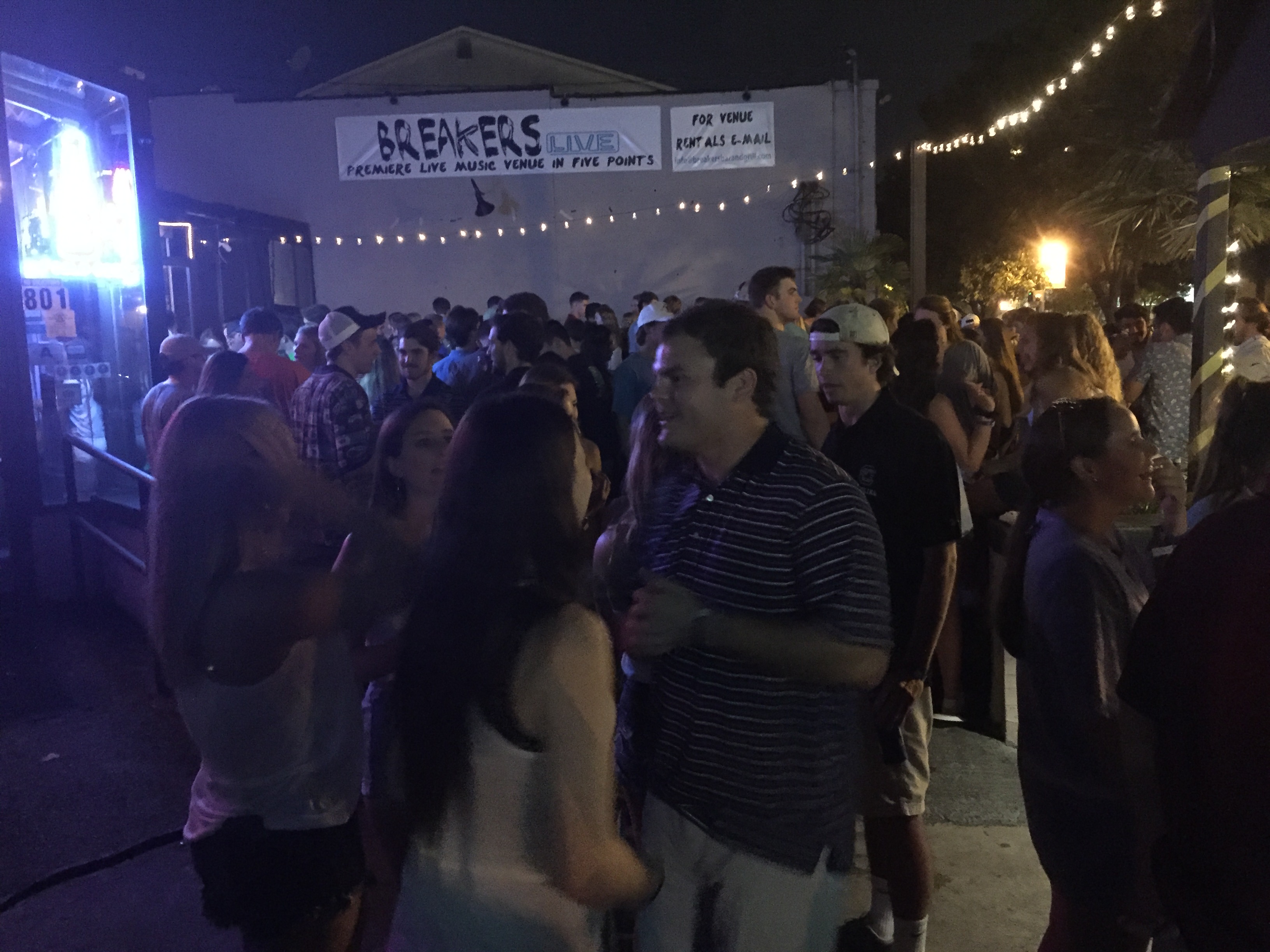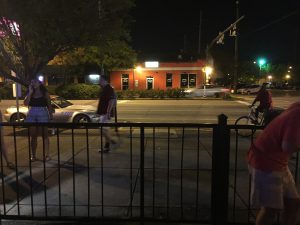Alcohol-related hospitalizations rise dramatically at USC
by Reporting Students • November 15, 2016 • All Stories • 0 Comments

Alcohol-related hospital transportations are up 158 percent at the University of South Carolina from last year. Has drinking on campus gotten worse, or is there another reason for the increase?
By Delaney McPherson
November 11, 2016
More than 100 University of South Carolina students have been hospitalized for alcohol-related incidents since the beginning of the academic year on Aug. 18, according to the university’s Office of Student Conduct. Perhaps more alarming: 40 percent of first-year students who filled out a university survey acknowledged blacking out within two weeks of filling out the form.
Last year on Oct. 26, the number of alcohol-related hospital transports of USC students was 50, the Office of Student Conduct reported. On that same date this year, the number was 129, a 158 percent increase. Much of the population of USC is under the legal drinking age of 21, suggesting the illegal consumption of alcohol continues to be a problem.
“I think that the statistics would show that we do” have more incidents, said Capt. Eric Grabski, with USC’s Division of Law Enforcement and Safety. “And I think that the severity of those calls are generally greater, more alcohol transports, more consequences because of the drinking and the behaviors of the students.”
The 2014 AlcoholEdu Executive Summary released by the University of South Carolina showed seven percent more heavy drinkers among the first-year population of students at USC than the national average, which is 18 percent of the student population.
The drinking statistics of USC were higher than the national average in every category. USC is often ranked among the nation’s party schools, in part because of its football and fraternity culture. And with partying comes the dangers of drinking.
The increase in hospitalizations this year was so drastic that the university’s sorority council created new standards for social events this year. Among the new rules: food must be provided and no liquor can be served. If any sorority or fraternity does not meet these standards for an event, that event will not be approved, and no member of sorority life can attend.
The issues surrounding drinking at USC have become so great that Grabski said that the police have had to strengthen their numbers in Five Points.
“Over the past several years, not just this year, there’s been a heightened police presence in Five Points, and that’s been directly related to the number of serious incidents happening in Five Points concerning students - over drinking, becoming intoxicated and because of that being hurt, being victimized, directly related to alcohol,” he said.
While the USCPD does not generally patrol Five Points, it does have jurisdiction there. The USC Police have reported 170 alcohol-related incidents on its crime log since the academic year began, including underage drinking, public drunkenness and driving under the influence. The logs do not reveal how many of those incidents required the student to be hospitalized.  Some people, however, do not believe that the volume of hospitalizations means binge drinking is on the rise.
Some people, however, do not believe that the volume of hospitalizations means binge drinking is on the rise.
“It’s the exact same it has been every year. There’s been an increase in hospitalizations because of drunk freshmen using the ‘hospital or jail’ tactic more,” said Garrett Moss, a bouncer at the popular bar Breaker’s Bar and Grill.
The “hospital or jail” tactic involves telling the police you have to be hospitalized, even when you don’t need it. According to Moss, if you tell the police you need to go to the hospital, they have to take you there and cannot charge you.
Not true, said Grabski, the USC police spokesman. Grabski said police will take an intoxicated person to the hospital upon request, but the offender might still be charged with underage drinking.
If you ask Grabski why there has been a rise in alcohol-related hospitalizations, he will tell you it’s because of binge drinking.
Many students do not realize the serious repercussions that can occur when drinking too much. Just two years ago, a USC freshman died after a night of drinking.
The University of South Carolina has many programs available to help students with alcohol issues through the Substance Abuse Prevention and Education office. These programs can help students with their issues and encourage safe drinking habits.
“At the end of the day, we want everyone to be safe; we don’t want anyone hurt; we don’t want anyone to die,” Grabski said.
